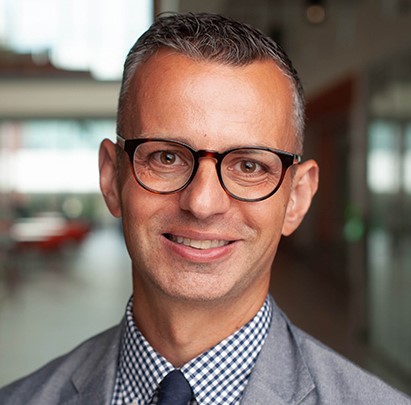Nearly every week, the 12 members of the Connecticut Conference on Independent Colleges meet to discuss items that affect higher education among private institutions, and notably all things COVID-19. The group includes leaders and pandemic coordinators from a wide swath of colleges and universities.
They range from the highly resourced Yale University down to Fairfield University, the University of Hartford and the University of New Haven. Members share relevant data and ideas about mitigation strategies that are working and new ideas for combatting transmission.
The news has been good so far. There have been no large outbreaks at any institutions to start the fall semester and most have high populations of students fully vaccinated, which mirrors the citizenry’s reception of doses (Connecticut is No. 2 in the nation). The dozen institutions combined had a 0.09% positivity rate from nearly 25,000 tests performed last week.
But even with those numbers and a brighter outlook nationally, there are concerns heading toward the winter. Connecticut has seen a slight rise in cases (+23%) and hospitalizations in the past two weeks. Students will be going home again for Thanksgiving and the longer December break. Weather could be a factor in planning as the delta variant’s spread combines with flu season. And just reported yesterday: the potential for an offshoot of delta (AY.4.2) rising in the UK.
Dr. Anthony Santella, an infectious disease expert who attends the CCIC meetings and leads the University of New Haven’s response, says they are monitoring those factors closely.

“All of the public health indicators are moving in the right direction—so let’s ease up a little bit or a lot?—that’s what everyone’s kind of figuring out,” says Santella, professor and interim chair in UNH’s Department of Health Administration and Policy and director of its Doctor of Health Sciences Program. ”But the reason why our case, hospitalization and death rates are so low is that we have all these public health mitigation strategies. If we start easing them, are we opening ourselves up to potential mini-outbreaks and deaths? Our approach will be to monitor and evaluate. It’s not going to be all or nothing. I’m not confident that we are in a position right now to just ease up. We certainly will be revising our COVID policies for the spring semester, but there are three months between now and the spring semester. A lot can happen.”
In the meantime, the university will be planning for its December commencement and coordinating with a third-party venue on its COVID policies and how they mesh with UNH’s policies. It will be looking at exemptions and how they might change under new requirements from the Biden Administration, and it will be preparing for study abroad as it reopens that pathway through its campus in Tuscany.
Santella says the fact that they’re thinking about those items—when last year they weren’t possible—is a good thing, but exercised caution to those considering reopening strategies.
“It shows we’re moving in the right direction, about having larger events, having students travel,” he says. “But as the university COVID coordinator, we are not at the light end of the tunnel. While we can plan these things, we have to keep in mind that things can change, with respiratory illnesses, breakthrough infections, other variants. We’re not through this yet. So it’s this back and forth—10 steps forward, two steps back—but they’re all positive things to be exploring.”
One thing the university won’t do is change dramatically the way it is operating as long as COVID-19 is a factor.
“We think our public health approach and policies that are really grounded in the emerging science have done us a lot of good, continuing to have physical distancing in the classroom, indoor mask mandates, required weekly surveillance testing for unvaccinated and partially vaccinated students,” Santella says. “We’re very careful in thinking through our policies and being very transparent with our stakeholders, including students and employees, so that everyone knows exactly what we’re doing, how we’re doing it. We’re hopeful that as we move through the winter months, we’ll be able to revisit some of our policies and remove some of the measures that we have in place.”
Two key items that most colleges will face in the coming months are how to continue to bring international students onto campuses and the rollout of booster shots, which are already available to some students.
“We provided some vaccine clinics in August to facilitate access, particularly for our international student population because they just didn’t have access to the same resources as Americans did,” Santella says. “We’ll do that again in January, because we expect a large number of spring starts as well, particularly with international students. For boosters, we do share information as the FDA and CDC come to decisions about who’s eligible. For example, the CDC guidance says that people living in residential settings, which do include colleges and universities, are eligible for a booster. If you received your first and second dose of Pfizer, it’s been at least six months since your second dose and you live on campus, you’re eligible.”







